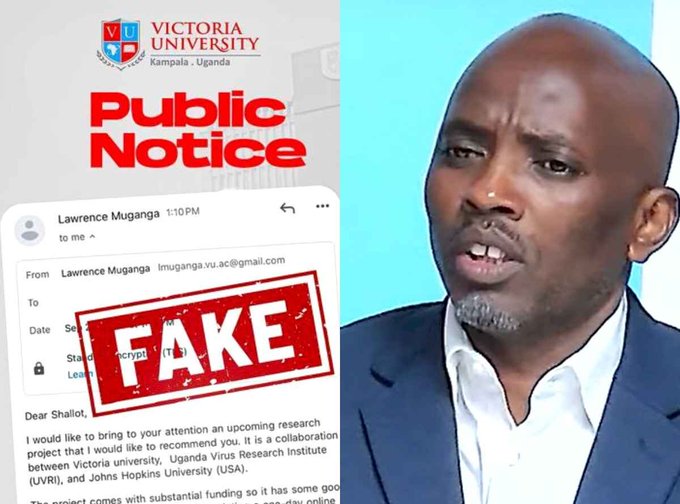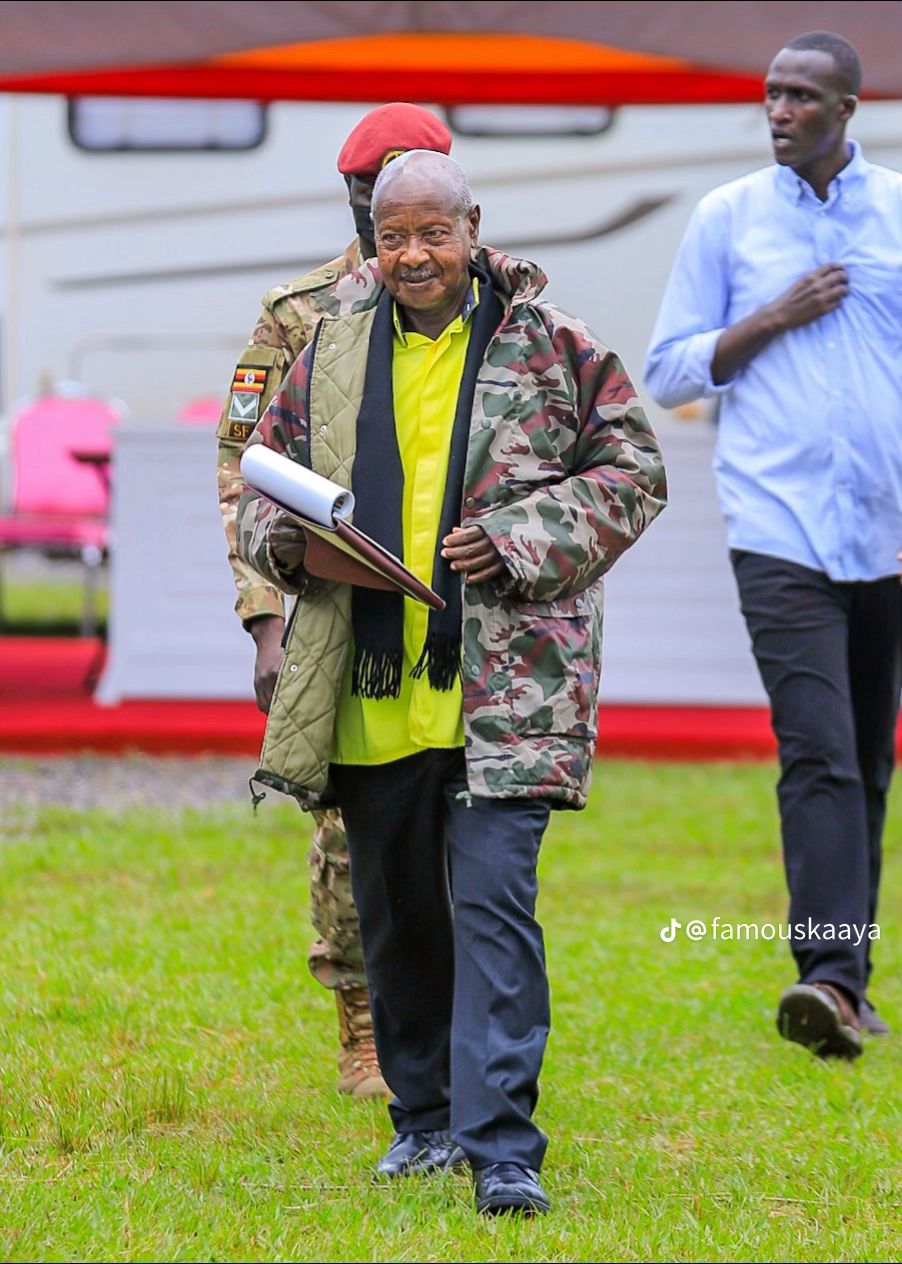Victoria University Kampala has issued a stern warning to the public following reports that fraudsters are impersonating its Vice Chancellor, Prof. Lawrence Muganga, in a bid to solicit funds under the guise of fictitious projects.
According to the university’s Public Relations office, the scam involves fraudulent emails that purport to come from Prof. Muganga, inviting recipients to partner in supposed research collaborations involving Victoria University, the Uganda Virus Research Institute (UVRI), and Johns Hopkins University. The emails ask for an upfront fee of UGX 2 million for a one-day online training session, promising reimbursement later. Recipients are further instructed to send their CVs to a Gmail address and contact a purported “Dr. Richard Igela” via mobile number +256 764 214016. However, investigations have shown that the number is registered to a different individual, and “Dr. Igela” is not listed among the university’s staff.
In a public notice dated September 27, 2025, Julius Bukyana Kato, the university’s Corporate and Public Relations Manager, strongly disavowed the scheme, emphasizing that neither Prof. Muganga nor the university has any connection to such solicitations. He urged the public to remain vigilant, avoid sharing personal or financial details in response to unsolicited proposals, and verify all official communication through the university’s verified channels. Victoria University stressed that authentic messages only come from official domains such as vicechancellor@vu.ac.ug and info@vu.ac.ug.
The case mirrors a growing wave of impersonation scams targeting prominent Ugandans. Earlier in 2025, businessman Dr. Sudhir Ruparelia was impersonated on social media. A fake X (formerly Twitter) account under the handle @RupareliaSudhi posted misleading content, including emotional messages after the death of his son, Rajiv Ruparelia, and attempted to pass off false endorsements. Sudhir disowned the account, noting that he does not operate any profile on X. Following reports, X suspended the account. Separately, scammers also used his profile picture on WhatsApp, tricking contacts into sending gift card codes under the pretense of business assistance.
Both incidents underscore how fraudsters exploit public trust in high-profile figures by mimicking their identities on digital platforms. These scams typically involve requests for money, sensitive information, or quick financial favors. Authorities and institutions alike are urging Ugandans to exercise caution, crosscheck suspicious messages, and report fraudulent activity immediately.
Victoria University reassured stakeholders that it remains committed to integrity and professionalism, while Sudhir Ruparelia reiterated his call for vigilance against digital impersonators. Together, these cases highlight the urgent need for stronger cyber awareness and public education to combat impersonation fraud in Uganda.
Do you have a story in your community or an opinion to share with us: Email us at Submit an Article








